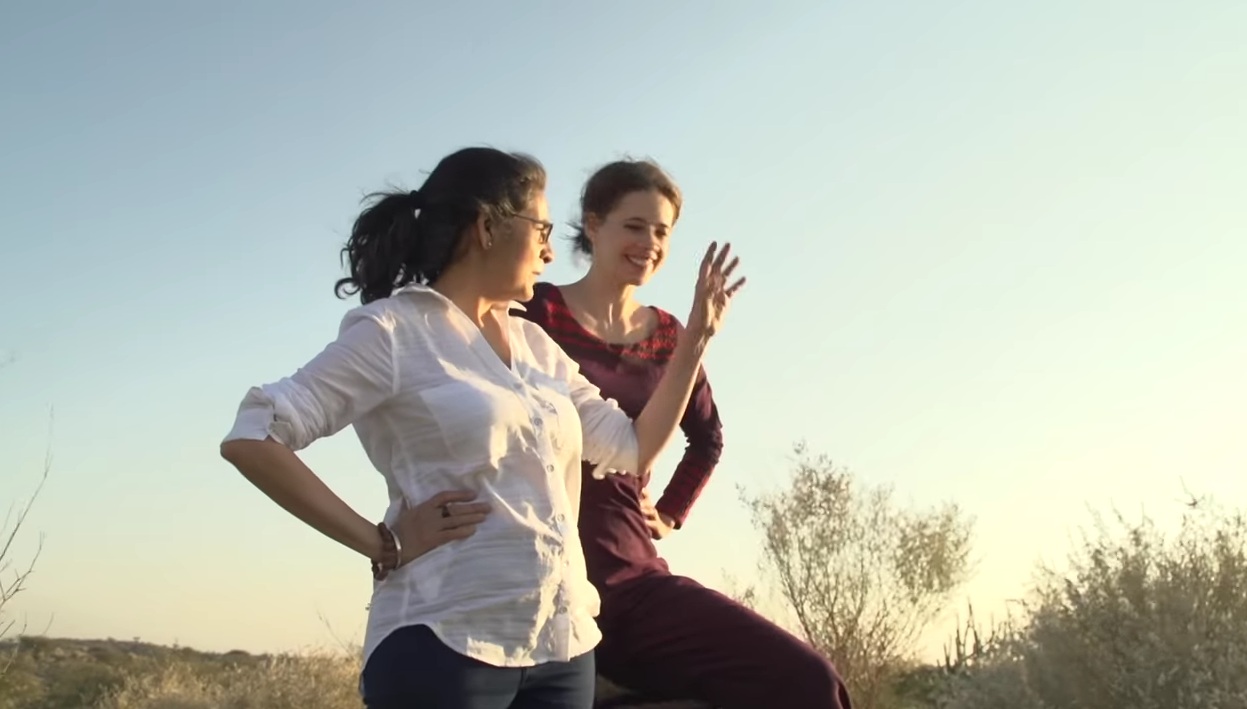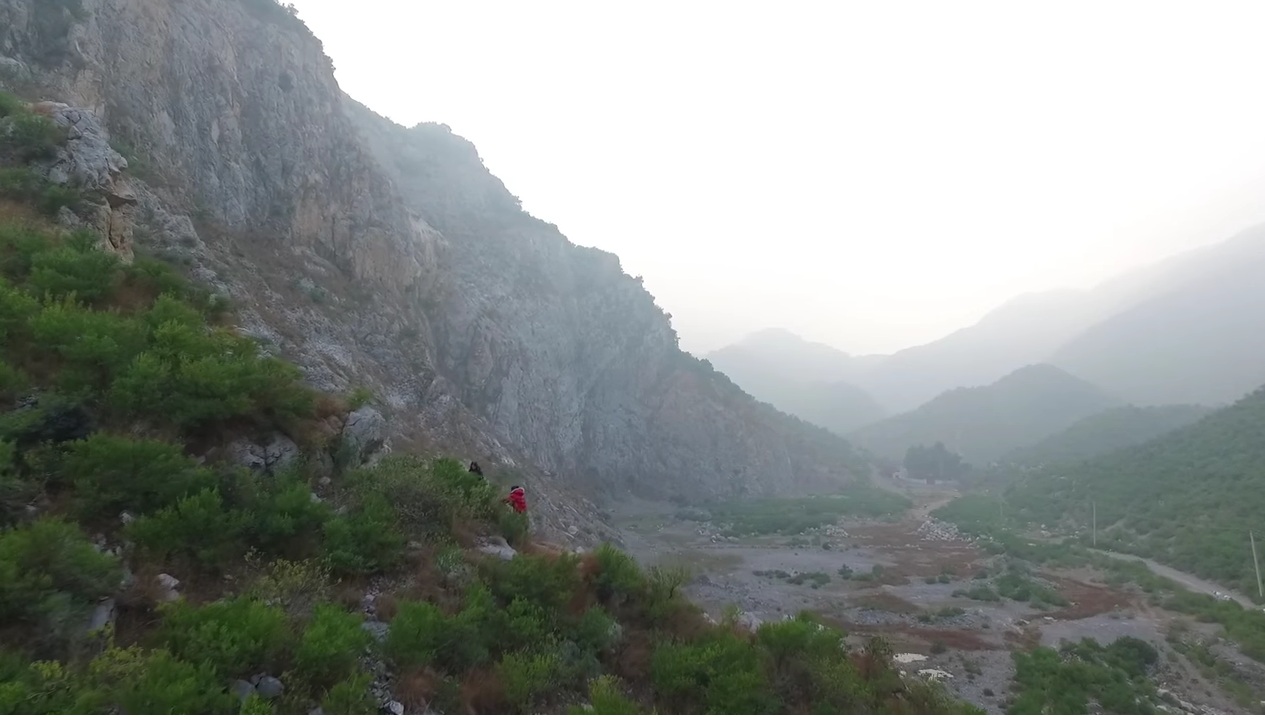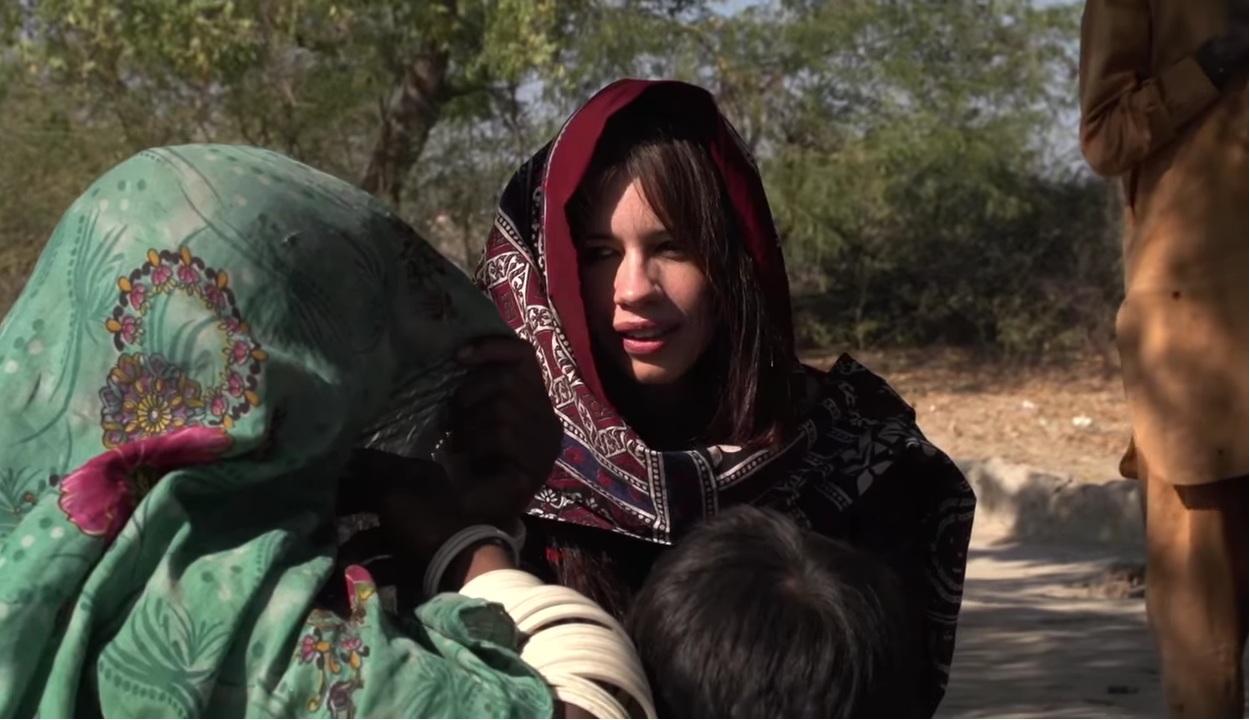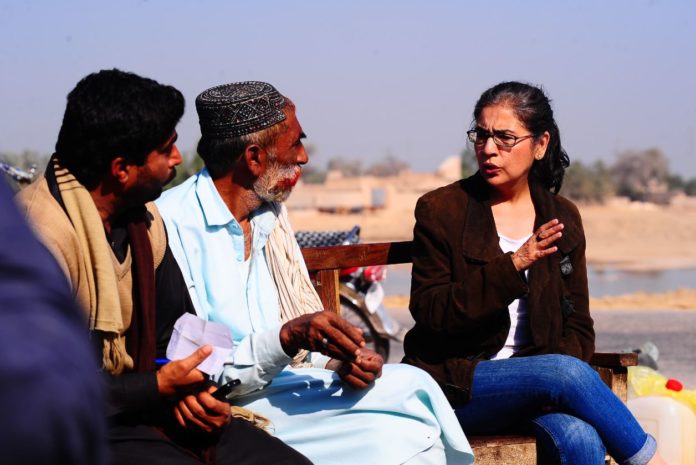Pakistan film industry is blessed with few gifted female filmmakers who time and again stun the world with their intellect, ingenuity, and courage of bringing difficult yet substantial stories to the screen. Be it Mehreen Jabbar or twice Oscar-winning director Sharmeen Obaid Chinoy, these filmmakers never shy away from traversing the less traveled roads and uncovering the dark truths of the society.
Sabiha Sumar is an eminent name among these audacious filmmakers, who has been trying to find answers to the difficult questions in her films for last two decades.
The award-winning director of the critically acclaimed Khamosh Pani (2003), which starred artists from Pakistan and India including Kiran Kher and Arshad Mahmood, has been exploring the sociopolitical issues and impact of religious fundamentalism on society and particularly on women in her films since the beginning of her career.
The unstoppable Sumar is back with another documentary Azmaish: Trials of Life, starring alongside one of Bollywood’s most talented actresses of this generation, Kalki Koechlin. The documentary will give an account of the journey of two women traveling across Pakistan and India and trying to ferret out why people in both countries are turning to religious extremism.

This is a pernicious thing to dig out, not just on this side but also on the other side of the border where rapid shift towards religiosity is weakening the secular outlook of India.
Answering the question if she fears any backlash for it, Sabiha Sumar opens up with Galaxy Lollywood in an exclusive interview, “fear is not a good attribute for a filmmaker. And being fearless doesn’t mean stupidly falling in a trap. It’s a thin line. Living on edge is something a documentary filmmaker must get use to. (Although, it always feels like ohmygod! How will I get through this one!) But it’s good to remind oneself that you can get through tough situations. A creative journey is full of twists and turns and demands quick decisions”.
Azmaish comes 14 years after Khamosh Pani in which she traced the religious extremism during Zai-ul-Haq’s regime. The documentary seems part of the same quest, as Pakistan kept on suffering heavily from the home-grown terrorism through all these years.
She also acknowledges the link between Azmaish and her previous work. She shares, “Khamosh Pani, which was the first Pakistani film to fund a release in India ran back to back with Veer Zaara, was about how the politicization of religion created violence in both India and Pakistan. As a filmmaker, I am still searching for this answer. Azmaish is a new part of this old search.”

It has been an exhausting quest for Sabiha Sumar. She traveled across the subcontinent to shoot Azmaish and faced many challenges, but it has been an enlightening experience as well.
“Shooting Azmaish in both India and Pakistan has shown me how resilient our people are. The leadership in our countries is not making full use of the human resource we have. This century demands a new vision for the subcontinent. Where will that vision come from?”
She leaves us with this open question.
But she will try to give her perspective on it in the documentary as well. “Azmaish is a search about what direction Pakistan and India should take. What do the people of both these countries want? How will they get it? It’s a film that gets beyond political rhetoric and connects the audience with the ground reality in both these countries”, she reveals.
Sabiha Sumar has worked with the artists from India in the past as well. In Azmaish she brought Kalki Koechlin, the prolific Bollywood actress, on board. How could she make it happen? “Kalki ‘s compassion and a no-nonsense approach was the key to her success in approaching people and getting them to open up to her. I think she found the idea for Azmaish strong and decided to participate”, she tells.
However, she does not feel good about the toll of current conflict between India and Pakistan falling on the artist community exclusively. “Tit for tat has been the norm in India-Pakistan relations. This needs to change. But how? What are the circumstances that could catapult the two countries towards a change? We have seen that artists are vulnerable and cannot achieve this alone”, she expresses her concerns over the ban of Pakistani artists in India meeting with suspension of Bollywood films in Pakistan.

Her last feature film Good Morning Karachi (2015), staring Amna Ilyas, was about the fashion world of Pakistan. The low budget film, despite the good storyline, could not do well at the box office. She, however, has a plan to make a ‘big’ film soon to support the growing popular cinema in Pakistan.
She sees positive prospects of the new-age cinema. “Pakistan is turning the corner. The arts especially cinema is beginning to find support in the country. Our ruling elite is starting to support cinema. We need financial institutions and film schools to come up so that a strong film industry can be built”, she opens up.
On the prospects of sustaining film environment in the country, she expresses, “Pakistan has a strong chance to make films that tell its stories and stories of the region in an authentic way. In fact the absence of a film industry can work to our advantage because we don’t have a dominating industry, even though Bollywood is just next door. Lets see how the industry develops in the next years. Good, strong cinema in both India and Pakistan can only be good.”
The shooting of Azmaish has been completed and currently it is raising funds for the post production expenses on an Indian crowd funding platform Wishberry. She needs 2 million Indian Rupees to complete the post production of the film before letting the world see it.
The film will be broadcast on German and French TV. It will also be screened in the festivals around the world. They are also hoping to set up a traveling cinema and take the film to small villages and towns in both India and Pakistan and encourage people to discuss the theme and the issues that the film raises.
https://www.youtube.com/watch?v=Na3_cdrzaI4




